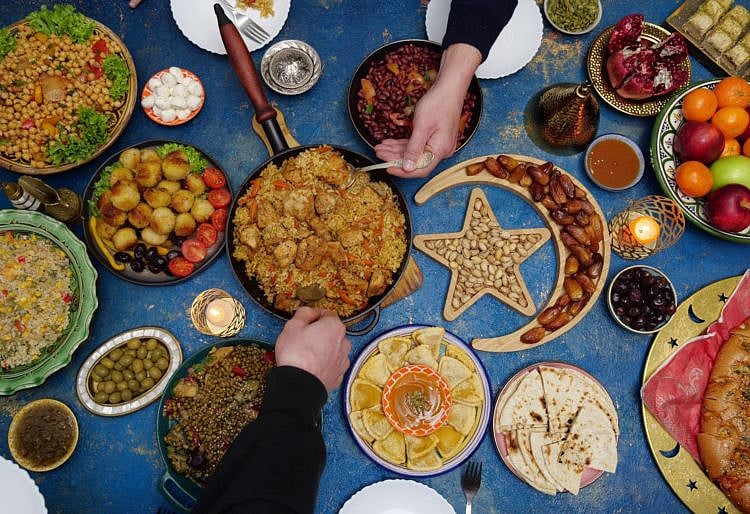Are fasting UAE residents having suhoor the right way this Ramadan?
Find out what time is ideal for the pre-dawn meal and what you should include in it

Dubai: As the name suggests, suhoor, the pre-dawn meal eaten during Ramadan, is consumed before beginning the day’s fast.
However, not all fasting residents in the UAE follow the same timing and food choices for suhoor.
A typical suhoor at her house includes dishes with “a lot of fruits and vegetables plus oats and eggs”.
“I usually avoid carbs as it makes me feel heavy. I make sure to include chia seeds to compensate for the water. I switch between coconut water and a protein shake and also take a handful of unsalted nuts. I keep all my portions small so that I don’t stuff myself,” Shiny said.
Though she tries to have suhoor religiously, Shiny misses it occasionally. “I have felt very tired those days. But, you get the energy to move on because of your mental strength and strong belief,” she says.
No pre-dawn meal
For Egyptian expat Bedour Mossa, Ramadan is also a good opportunity to focus on her health.
“It is important to detox during the fasting hours. So, iftar is the main meal for me,” she said.
“We have iftar and by around 11pm or midnight, I have another small meal. I add some fruits or veggies and a small dessert for that. So, I eat only one main meal during Ramadan, something like the OMAD style,” she said.
OMAD or One Meal A Day is a type of intermittent fasting that restricts calorie consumption during a certain window of time.
When to have suhoor?
But what is the ideal way to have suhoor? What time should it be eaten and what ingredients should it contain? Gulf News posed these questions to Lina Doumani, clinical dietitian, Medcare Medical Centre, Jumeirah.
According to her, having suhoor just before bedtime may lead to fat storage and indigestion.
What to have for suhoor?
“A balanced suhoor should include macronutrients like protein, carbohydrates, vegetables, and dairy products. By incorporating these elements, suhoor helps prevent overeating at iftar, regulates hormonal balance, manages underlying metabolic symptoms, and reduces cravings for sweets during iftar.”
Optimal suhoor choices encompass protein-rich foods such as eggs, low-fat cheese, chicken, or turkey, and complex carbohydrates like whole wheat bread, vegetables, and low-fat yoghurt, providing essential protein and calcium.
Additionally, suhoor aids in hydration, preventing thirst throughout the day, Lina added, emphasising the importance of avoiding salty foods and prioritising consumption of water, vegetables, and fruits to stay hydrated.
DHA guidelines on suhoor
-Try to have a suhoor that has essential nutrients and is low in calories.
-Eat soups rich in vegetables and proteins like chicken.
-Yoghurt and dates are also recommended.
- Don't set a time for an early suhoor instead of the normal time just before the Fajr prayer.
-Avoid fast-food as it is full of sugar and fats.
-Don’t forget to drink plenty of water.
Sign up for the Daily Briefing
Get the latest news and updates straight to your inbox
Network Links
GN StoreDownload our app
© Al Nisr Publishing LLC 2026. All rights reserved.